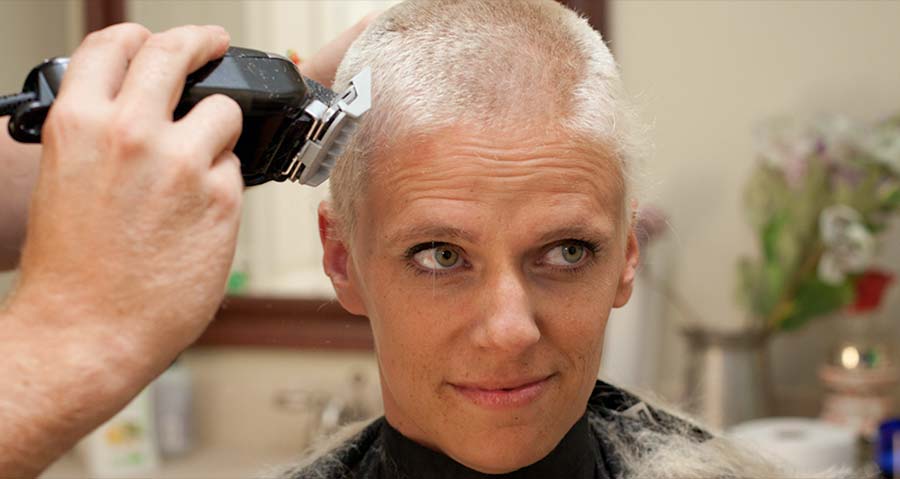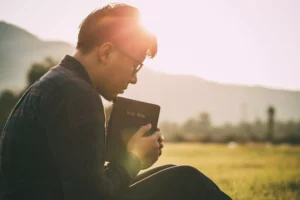“What if instead of being angry at life, what if you learned something of love today?” —Kara Tippetts
These words open the documentary “The Long Goodbye: the Kara Tippetts Story” which went live on Netflix on June 24. Kara Tippetts, a pastor’s wife, mother of four and eventual blogger and author, battled terminal cancer and died on March 22, 2015 at the age of 38.
I lived in Colorado Springs, the city Kara called home, during her three-year battle with cancer. I followed her story online, through mutual friends and even on the local news. And like many people around the world, Kara’s life and death impacted me deeply.
A few weeks ago, when I sat down to watch the documentary, I wasn’t sure what to expect. Would it simply be another tear-jerking story of a person of faith going through suffering? But I found it to be much more than that. Be warned: the film is a tear-jerker (and possibly a trigger for someone going through a similar journey). But as Kara and her family and friends shared honestly about what it was like to walk through a deep valley, several key themes arose that I found particularly enlightening and challenging.
Here are three lessons I think we can learn from Kara Tippetts:
1. Sometimes we need to grieve our stories then trust them to God.
Kara talks about coming to terms with dying young. Kara was diagnosed with breast cancer at 36 just as she and husband, Jason, were planting a church. Despite aggressive treatment, the cancer later spread throughout her body, leaving no further treatment options.
In the film, Kara talks openly about the sadness of losing her beautiful blond hair and telling each of her four children — ages 5 to 13 — that she is dying. She laments the birthdays she’ll miss and talks about the frustration of not having the strength to be the person she wants to be.
“My story is different than I imagined it,” she says, “so I have to grieve the story that is.”
Many of us can relate to not having the story we hoped for or imagined. Maybe we’re single when we desired to be married. Or our career dreams haven’t come true. Perhaps we’re walking through a scary diagnosis or the loss of a loved one. Maybe we feel overlooked or unappreciated.
While Kara expresses genuine grief over the difficult path she’s been asked to walk, much like the Psalmist, she also affirms her deep trust in God. “Suffering isn’t a mistake,” she says. “It isn’t the absence of His goodness, because He’s present in pain.”
2. As believers we need community.
As you watch the film you learn that Kara was particularly gifted in building community. “When you’re with her you feel like the most important person to her,” one of her friends says. In the midst of Kara’s suffering, her community played a large role in helping her finish well.
A core group of girlfriends brought meals, took shifts helping Kara at home, and provided transportation for her children to and from school. And each of these friends also had a community of people supporting them and making sure they were OK. “Often the good moments come in the form of community,” Kara says, “and [seeing] all the layers of sacrifice being made to support my family.”
It’s a beautiful picture of the way God designed the body of Christ to work. Like an interconnected root system, many members strengthen and support each other through good times and bad. I was challenged to think through if I am cultivating this kind of community and how I can better extend community to others.
3. Love endures.
An overwhelming theme of Kara’s life was love. In the film she talks about love over and over again. “The love that I give will live beyond me,” she says. Later she turns her attention to the viewer, “How today can you move past your comfort and let Jesus love you enough to let that love spill out on someone else?”
Kara understood the vital nature of love in life and death. She had a keen understanding of 1 Corinthians 13:13 which says, “So now faith, hope, and love abide, these three; but the greatest of these is love.” What is astounding, and portrayed well in the film, is how she stayed laser-focused on love through extreme pain until the very end.
Enduring Influence
I haven’t been able to stop thinking about Kara’s story since I watched the documentary. It has challenged me and caused me to wrestle with things deep in my soul. In her article “Dear Kara, You’re on Netflix,“ Kara’s good friend and co-author, Jill Buteyn, writes:
“And that right there, Kara, is the reason you’re on Netflix. Because even as you were dying you were shouting FAITH and LOVE. You were shouting GOD IS TO BE TRUSTED. You refused to buy into the lie that God makes all things good in OUR understanding. You instead reminded us over and over again that God makes all things good in HIS understanding.”
Kara’s faithfulness has led to influence she likely never imagined. More than 17,000 people watched the live stream of her funeral. And the community she built in life continues on. She allowed God to love her in the midst of her deepest suffering, and in turn, showed us all how to let His love abound more in our lives. Perhaps that is her greatest legacy — a legacy of love.
Editor’s note: I had the privilege of being on the search committee that called Kara and Jason to their church plant in Colorado Springs. I took them to breakfast the first time they were in town, and it wasn’t long before Kara in classic Kara fashion asked me, “So Lisa, why are you still single?” She became a friend. I interviewed her and Jason several months after her cancer diagnosis and then again several weeks before she died. Like Suzanne, Kara inspired me with her ability to live and love others in the moment she was in. She never put off until tomorrow a kindness she could do today; she prioritized whomever was right in front of her. I will never forget that. ~Lisa Anderson
Copyright 2019 Suzanne Hadley Gosselin. All rights reserved.











